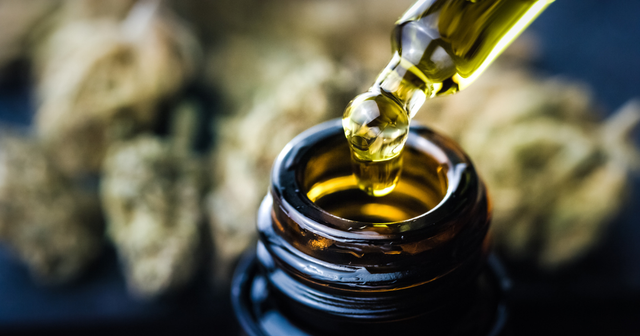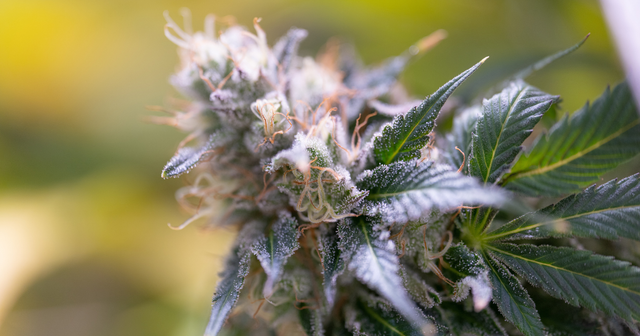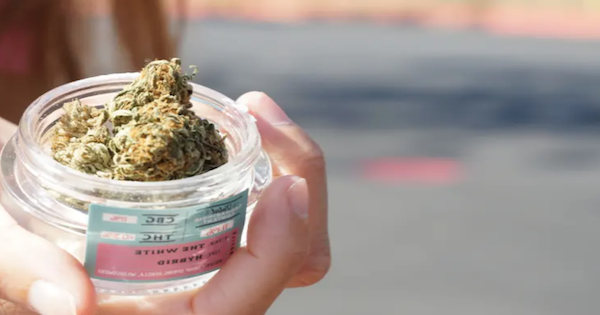Cannabinoids Explained: THCa
THCa is a non-intoxicating cannabinoid that can be found in raw, live cannabis. Written by Anna Barberena.
What is THCa?
THCa is a non-intoxicating cannabinoid that can be found in raw, live cannabis. THCa is the acidic precursor to the more well known THC. As cannabis is cured THCa is slowly converted to THC. Heat from a lighter, a vaporizer, or an oven will speed up this conversion through a process known as decarboxylation. Without the decarboxylation process, THCa will remain non-intoxicating. THCa and THC are the most abundant cannabinoids found in cannabis with concentrations up to 40%. Many cannabis companies are now including THCa percentages in their cannabinoid testing breakdown. The THCa concentration is technically a more accurate label for flower that hasn’t been decarboxylated yet, meaning that you can include the THCa percentage when discussing THC percentages. According to Dr. Dustin Sulak, THCa displays numerous therapeutic benefits such as reducing nausea, vomiting, inflammation and pain. Dr. Ethan Russo states that THCa has the potential to help with weight loss, certain metabolic syndromes, Type 2 diabetes, and the treatment of cancer (3). A noteworthy feature of THCa is its ability to produce strong anti-seizure and anti-nausea effects at lower doses than THC (1, 2).

According to Dr. Dustin Sulak and Dr. Ethan Russo, the Therapeutic Effects of THCa are:
- Non-intoxicating
- Pain reliever (analgesic)
- Anti-insomnia
- Anti-inflammatory
- Neuroprotective
- Helps reduce nausea (antiemetic)
- Inhibits the spread of cancer cells (anti-proliferative)
- Reduces seizures and convulsions
Entourage Effect
- When THCa is combined with CBDa there is a synergistic effect which enhances both cannabinoids ability to reduce nausea (2)
- The combination of THCa, THC and CBD is also showing great promise in reducing epileptic seizures in children (1)
Conditions THCa May Be Beneficial For
- Arthritis
- Lupus
- Neurodegenerative diseases
- Nausea and vomiting
- Appetite loss
- Cancer
- Insomnia
- Epilepsy
- Chronic Pain
Potential Adverse Side Effects
- Potential medication interactions
- More research is needed to understand potential adverse effects
Citations:
- Sulak D, Saneto R, Goldstein B. The current status of artisanal cannabis for the treatment of epilepsy in the United States. Epilepsy Behav. 2017 Feb 18.
- Rock, E M et al. “Tetrahydrocannabinolic acid reduces nausea-induced conditioned gaping in rats and vomiting in Suncus murinus.” British journal of pharmacology vol. 170,3 (2013): 641-8. doi:10.1111/bph.12316
- “Cannabis: A Medicinal Treasure Trove with Ethan Russo, MD.” Project CBD, 30 Dec. 2019, https://www.projectcbd.org/science/cannabis-medicinal-treasure-trove-ethan-russo-md.
References:
- Russo, Ethan B. “Taming THC: potential cannabis synergy and phytocannabinoid-terpenoid entourage effects.” British journal of pharmacology vol. 163,7 (2011): 1344-64. doi:10.1111/j.1476-5381.2011.01238.x
DISCLAIMER: THIS SITE DOES NOT PROVIDE MEDICAL ADVICE.
All information, including but not limited to, text, graphics, images and other materials contained on this site are for informational purposes only. No text, graphics, images or other materials on this site are intended to be professional medical advice or a substitute for professional medical advice, diagnosis or treatment. Always seek the advice of your physician or other qualified health care provider with any questions you may have regarding a medical condition or treatment and before undertaking a new health care regimen, and never disregard professional medical advice or delay in seeking professional medical advice because of something you have viewed on this site.
DISCLAIMER: THIS SITE DOES NOT PROVIDE MEDICAL ADVICE.
All information, including but not limited to, text, graphics, images and other materials contained on this site are for informational purposes only. No text, graphics, images or other materials on this site are intended to be professional medical advice or a substitute for professional medical advice, diagnosis or treatment. Always seek the advice of your physician or other qualified health care provider with any questions you may have regarding a medical condition or treatment and before undertaking a new health care regimen, and never disregard professional medical advice or delay in seeking professional medical advice because of something you have viewed on this site.


